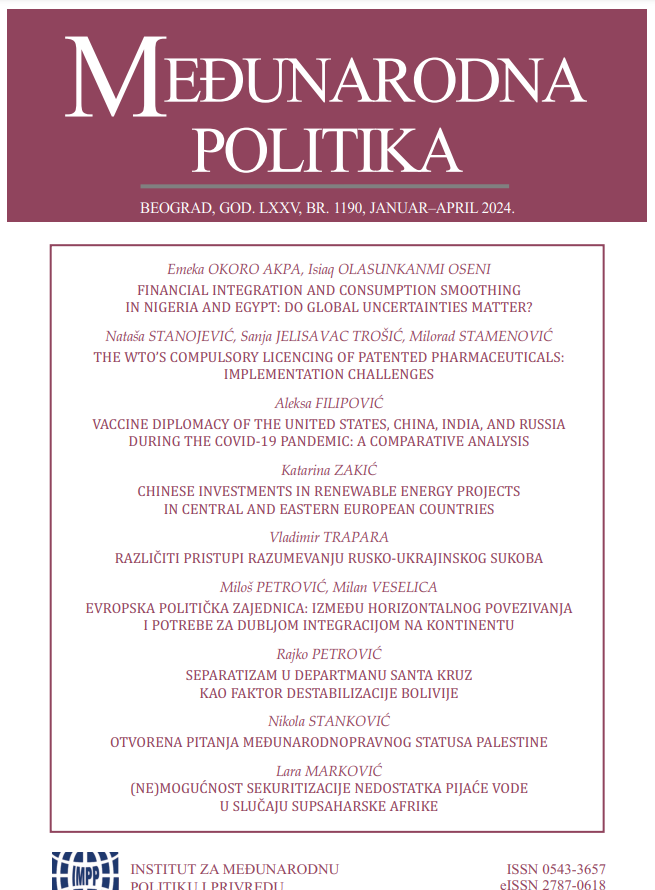(Ne)mogućnost sekuritizacije nedostatka pijaće vode u slučaju Supsaharske Afrike
(In) ability to securitize the lack of drinking water in the case of sub-Saharan Africa
Author(s): Lara MarkovićSubject(s): Environmental and Energy policy, Security and defense
Published by: Институт за међународну политику и привреду
Keywords: securitization; politicisation; Africa; Sub-Saharan Africa; measures; lack of drinking water; climate change; regional cooperation
Summary/Abstract: Water and climate change are inherently linked because climate change complicates existing problems related to access to clean water, such as civil conflicts hindering access to water sources, underdeveloped infrastructure, overpopulation, and wastewater pollution. Relying on the basic factors of securitization theory, the paper examines the possibilities of the securitization process in solving problems caused by climate change. For the case study, vulnerable countries in Sub-Saharan Africa were selected and analysed in relation to the issue of insufficient drinking water. The lack of drinking water, caused by various factors, means that demands for water resources and human consumption are disproportionate. Dominant problems African countries face include drought, floods, and water pollution, as evidenced by examples from South Africa, Tanzania, Chad, Madagascar, Kenya, Malawi, and Ghana. The paper concludes that despite the measures taken and certain progress, African countries do not meet all the conditions suggested by securitization, and furthermore, they lack the means to finance such endeavours. In the foreseeable future, addressing the problem within a regional framework and cooperation among African countries in that format show greater potential for resolving this complex problem.
Journal: Међународнa пoлитика
- Issue Year: 75/2024
- Issue No: 1190
- Page Range: 205-226
- Page Count: 22
- Language: Serbian

